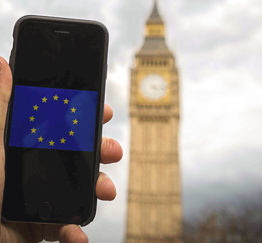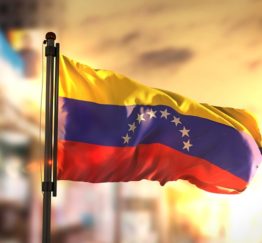If you thought doing business with the Democratic People’s Republic of Korea (DPRK) was tough before, the recent official reports coming out of the oft-in-the-news-for-behaving-badly nation that they have successfully created miniature nuclear warheads that can fit on long-range ballistic missiles have unleashed even broader export and trade sanctions against the country.
For those who’ve done business with North Korea in the past, it’s more important now than in recent memory that they have their OFAC, and other export and trade compliance, ducks in a row. Because you know that when China—the DPRK’s largest trading partner—finally votes in support of sanctions, the rest of the world, at the very least, is going to double down.
So, just how are businesses affected by these new sanctions?
The UN and EU
Where some wiggle room may have previously existed, the UN Security Council adopted Resolution 2270 (2016) with the goal of further stifling funds for DPRK’s nuclear and banned weapons programs while, at the same time, hoping to prevent “adverse humanitarian consequences” for its citizens. Among some of prohibitions outlined in the UN Resolution include:
- The export of iron, iron ore and coal to fund North Korea’s nuclear and ballistic missile programs;
- The export of aviation fuel, including kerosene-type rocket fuel;
- The opening of new branches, subsidiaries, or representative offices of North Korean banks in member states; and
- The formation of new joint ventures, or maintaining or establishing correspondent relationships with North Korean banks.
And where previously, businesses in the financial and banking sector were encouraged to freeze the assets of companies and other entities linked to Pyongyang’s nuclear and missile programs, now they are required to do so.
The European Council also weighed in by adding 12 entities and 16 individuals to its Designated Person (DPs) list, prohibiting any dealings, directly or indirectly, with those induvial, as well as with entities “owned or controlled,” directly or indirectly, by those same DPs. These prohibitions also include dealing with individual representatives of Tanchon Commercial Bank and the Korea Mining Development Trading Corporation. In some cases, entire entities , including the Reconnaissance General Bureau, the Ministry of Atomic Energy Industry, the Munitions Industry Department, and Korea Kwangson Banking Corporation, have been added to the DP list.
OFAC
Targeting parties with connections to the DPRK Government, its nuclear and weapons proliferation efforts, and other pursuits that help it along, OFAC added 5 more entities and 12 individuals to the SDN List under the North Korea and Non-Proliferation Sanctions programs. U.S. Persons are prohibited from any transactions, directly or indirectly, with parties listed on the SDN List as well as with any entities whose ownership is 50% or greater by one or more SDNs.
Additionally, all export or re-exports of items of U.S. origin or foreign-made items with more than 10% U.S.-origin content will require a license, with applications of such licenses to be under presumption of denial. That said, the legislation does state that there may be some exemptions granted for non-luxury food, agricultural products, medicine and medicinal devices that fall under EAR99.
Key takeaway
While many remain skeptical about the DPRK’s ability or intentions to turn enemy cities into a “sea of fire,” their recent actions certainly unleashed a flood of sanctions running deep enough that businesses must be extra vigilant about keeping their export compliance heads above water. Simply describing the additions as “increased” is grossly inadequate—more like a massive legal Gordian knot. They are complex and far-reaching, and any organization even thinking of dealing, or does deal, with the DPRK should exercise extreme caution. But as limited commerce with North Korea are still allowed by OFAC, trade with the nation is possible. Businesses who plan to do so would be wise to screen, rescreen—and repeat—throughout their entire business lifecycle with a DPRK national or entity.





